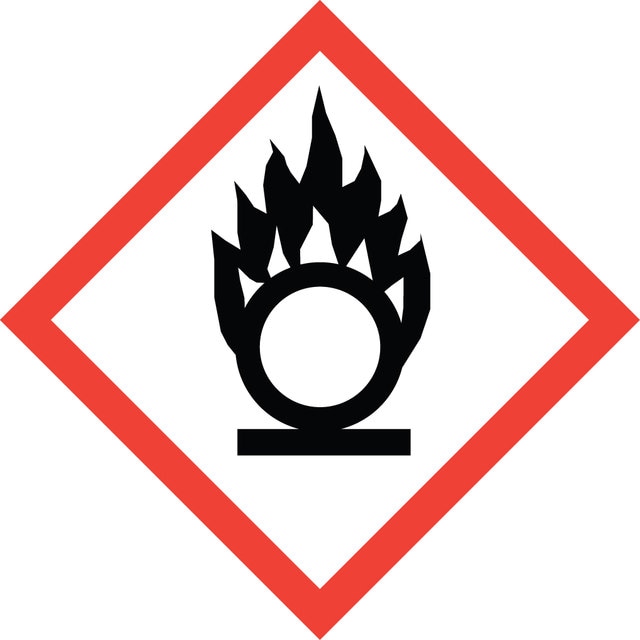Sign In to View Organizational & Contract Pricing.
Select a Size
About This Item
Linear Formula:
KBrO3
CAS Number:
Molecular Weight:
167.00
EC Number:
231-829-8
PubChem Substance ID:
MDL number:
InChI key
OCATYIAKPYKMPG-UHFFFAOYSA-M
InChI
1S/BrHO3.K/c2-1(3)4;/h(H,2,3,4);/q;+1/p-1
SMILES string
[K+].[O-]Br(=O)=O
grade
ACS reagent, p.a.
assay
99.8%
Looking for similar products? Visit Product Comparison Guide
signalword
Danger
hcodes
Hazard Classifications
Acute Tox. 3 Oral - Carc. 1B - Ox. Sol. 1
Storage Class
5.1A - Strongly oxidizing hazardous materials
wgk
WGK 3
Regulatory Information
新产品
This item has
Choose from one of the most recent versions:
Already Own This Product?
Find documentation for the products that you have recently purchased in the Document Library.
Potassium bromate.
IARC monographs on the evaluation of carcinogenic risks to humans, 73, 481-496 (2000-05-11)
Y Kurokawa et al.
Environmental health perspectives, 87, 309-335 (1990-07-01)
Potassium bromate (KBrO3) is an oxidizing agent that has been used as a food additive, mainly in the bread-making process. Although adverse effects are not evident in animals fed bread-based diets made from flour treated with KBrO3, the agent is
James E Cleaver et al.
Proceedings of the National Academy of Sciences of the United States of America, 111(37), 13487-13492 (2014-08-20)
Cockayne syndrome (CS) is a human DNA repair-deficient disease that involves transcription coupled repair (TCR), in which three gene products, Cockayne syndrome A (CSA), Cockayne syndrome B (CSB), and ultraviolet stimulated scaffold protein A (UVSSA) cooperate in relieving RNA polymerase
Magdalena Stasiak et al.
Endokrynologia Polska, 60(1), 40-50 (2009-02-19)
Potassium bromate (KBrO(3)) is a compound belonging to Group 2B of carcinogens (a possible human carcinogen). This agent was used as a food additive in flour treatment, as a component of cold-wave hair lotions, and is still used in barley
Gellan gum-g-N-vinyl-2-pyrrolidone: synthesis, swelling, metal ion uptake and flocculation behavior.
Shiv Kumar Verma et al.
International journal of biological macromolecules, 72, 1292-1300 (2014-12-03)
The synthesis of graft copolymer (gellan gum-g-N-vinyl-2-pyrrolidone) is carried out in nitrogen atmosphere using potassium bromate and silver as redox system. The reaction conditions for maximum grafting have been optimized by varying the reaction variables, including the concentration of N-vinyl-2-pyrrolidone
Our team of scientists has experience in all areas of research including Life Science, Material Science, Chemical Synthesis, Chromatography, Analytical and many others.
Contact Technical Service

